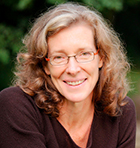
Karen Masterson
-
Profile
Karen Masterson has been a journalist for over 20 years.
She comes from the Washington, D.C., area, where she has lived most of her adult life, first working for members of Congress (U.S. Sen. John Glenn and U.S. Rep. Tony Hall), then as a national reporter covering Congress and the White House for the Houston Chronicle. She has also covered the New Jersey Pine Barrens and local and state environmental issues as a suburban reporter for the Philadelphia Inquirer. And she has written for a range of other publications, including the Washington Post, Nature, Time, The Lancet, The Baltimore Sun and the Hagerstown Herald-Mail.
She has a master’s degree in science writing from Johns Hopkins University, Homewood; a master’s degree in journalism from the University of Maryland, College Park; an honour’s degree in intellectual history from the University of Cape Town, South Africa; and an undergraduate degree in political science from the University of Tampa.
Her awards include the 2017 Excellence in Teaching award from Johns Hopkins University undergraduate programs; a 2005 Knight public health fellowship to study malaria with CDC experts in Atlanta and rural Tanzania; a 2004 Writing Seminars fellowship at Johns Hopkins to study global health and the history of medicine; and a 1993 ambassadorial scholarship from Rotary International to study in Cape Town and travel throughout southern and eastern Africa.
Before joining the University of Richmond, Masterson was a part-time lecturer at Johns Hopkins and then an assistant professor of science journalism at Stony Brook University, where she ran two grant-supported experiential reporting projects. The first, on the Long Island Pine Barrens, aired as a four-part series on NPR affiliate WSHU and won the Long Island Media Council Folio Awards for “best environmental series.” The second, on Long Island’s history of slavery, is scheduled to air on WSHU the summer of 2020.
Masterson’s first book, The Malaria Project, is a narrative history of the race to beat malaria, 1920 to World War II (and documents the discovery of chloroquine). She is currently working on a new book about the public health history of Liberia.